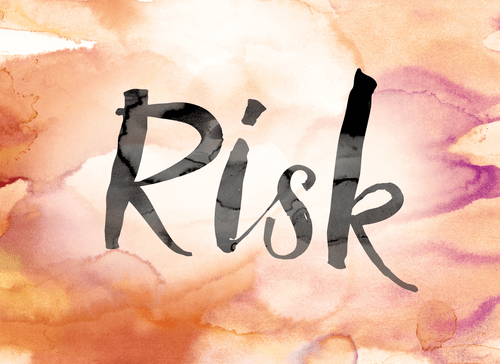Hitting rock bottom was the beginning of my beautiful new life. Unfortunately, I didn’t see it that way at the time.
June 7, 2008, I should have been getting ready to go on vacation to Hawaii, but instead, I was lying face-down on my bed, crying. Why? Twenty minutes earlier, my husband of seven years had confessed that he had been seeing someone else in the past six months.
The real kicker? The other woman was someone I’d considered one of my best friends.
There was no way I could stay in the same house as this man any longer than was necessary, let alone take a trip with him. We’d even decided it would be our “second honeymoon.” What a joke, I thought, as my tears soaked through the comforter.
You won’t be too surprised to learn that our marriage didn’t make it. He and I had been together for over 10 years since we were 16, but the trust between us was completely destroyed.
But that wasn’t the end of it. I didn’t pick myself up and carry on. I fell into an awful state of depression and, by the end of August, I’d lost my job. Our marital home was in my husband’s name. I couldn’t afford to move out and pay rent alone. My whole lifestyle – and direction – would have to change.
Sometimes things have to fall apart to make way for better things – Ted Mosby
Table of Contents
Hitting Rock Bottom

So, that was me in the fall of 2008: divorced, depressed, heartbroken, and unemployed. I was barely able to get out of bed in the morning. No way was I in a position to get another job. At the age of 26, I found myself moving away from my beloved New York, back to my parents’ home in Florida. Over the next year, while hitting rock bottom, I have learned several lessons.
Lesson #1: Don’t be afraid to ask for help
One of my best friends had betrayed me, but I was lucky enough to have two other people to support me: my mother, who offered me a place to stay, and my friend Becky, who had been through a divorce in her early thirties.
I don’t know where I would have been without Becky, who let me talk to her for hours on the phone, and I’ll always be grateful that my mom was so quick to help me during one of the worst times of my life.
My therapist, my online friends, and even an anonymous listening service were all key in helping me re-evaluate where my life was going. They suggested new careers I could try, along with self-help measures that I could use to lift my mood.
I found that eating a whole food diet, taking regular exercise, telephone appointments with my therapist, volunteering at an animal shelter, and writing about my feelings all made a huge difference. However, I wouldn’t have been able to push myself to do any of the above without the support of others. Having the right people on your side makes all the difference.
Lesson #2: Journaling your situation and set goals
Having moved my stuff back into my parents’ house, I then had to take stock of my situation. It wasn’t pretty. I’d assumed that at this point in my life, I’d be enjoying life with my husband, maybe even thinking about starting a family. Instead, I had been forced to rethink everything.
I was scared. Life seemed so overwhelming. I was in therapy and on antidepressants, but I knew that undertaking personal work was the only way I’d ever emerge from the mess I found myself in.
I started journaling after reading about its benefits online. On the first page, I wrote down the two questions I needed to solve:
1) What kind of work do I want to do?
2) How can I get over my divorce?
Pretty heavy questions, but I had to start somewhere! Writing them down instantly gave me a sense of control. I then brainstormed short and long-term goals. For example, my short-term goals included making money in a part-time job, and my long-term goals included renting my own place.
It sounds simple, but giving yourself the time and space to decide what you want will restore your sense of purpose. Even if you don’t have the resources or energy to work towards them right now, by writing them down you are affirming that your life has value and is worth living.
Lesson #3: Take some risks! You never know what will happen.

My first priority was to start earning money. My parents were kind enough to let me live with them rent-free, but I didn’t want to take advantage of their generosity. My therapist had also suggested that finding my way back into part-time paid work would help lift my depression.
This threw me into a panic. There weren’t many job opportunities around, and I wasn’t sure whether I’d be able to find a job with hours that suited me. One day, my mother mentioned that one of her retired friends had made a bit of cash writing a few articles.
How did I learn to take chances?
Hmm, I thought. I wonder whether that would be an option for me. I’d always loved to write, but never dreamed I’d be good enough to pursue it professionally.
I had never taken a writing class in my life, but I figured I had nothing to lose. I applied for a couple of casual blogging jobs via freelancer platforms. My first paycheck was just $30, but it was a start! It turned out that those small checks add up.
Within a couple of months, I was starting to make a good part-time wage. Submitting that first assignment was terrifying, but it was worth the risk. Since then, my writing career has blossomed.
If you are considering entering a new field, I would advise you not to get too caught up in the “what ifs” and “maybes.” Just go for it! Start small. You can always aim higher as your confidence grows.
Lesson #4: Take responsibility for your own success
Like most writers, I hit a few stumbling blocks along the way. I applied for a lot of gigs and was turned down for most of them. To say I was frustrated would be an understatement. I remember whining to Becky one night, moaning how unfair it was that I’d been trying so hard but was only getting hired about 10% of the time.
“Look,” she said. “I don’t want to be mean here. But ultimately, this comes down to you. You’ve just got to apply for more gigs, network more, and keep on trucking.”
Her words stung, but she was absolutely right. You can complain all you like, but your success is down to you. I soon came to realize that no one else was going to do this for me. You aren’t a child anymore. Only you can decide on the right goals, career path, and relationships that best suit your needs.
If I wanted to be a writer – and I was rapidly becoming convinced that this was what I wanted to do for a living – only I could make the dream a reality. Yes, it’s scary to depend on yourself, but it’s also incredibly empowering. If you can, ask your friends or family to give you some encouragement from time to time.
The beauty of hitting rock bottom is it allowed you to rebuild your life the way it should be. And only if you are willing to get up because if you don’t, you’ll miss the opportunity to be truly happy.
Lesson #5: Move on from the past, only then can you look into the future.
My early forays into freelancing were tough going, but they gradually proved fruitful. It provided me with a sense of purpose, and my depression slowly began to lift.
However, I couldn’t ignore the fact that my heart had been shattered, and my divorce was still affecting me on a profound level. It was the first thing I thought about in the morning. I frequently dreamed about my ex, and my heart jumped whenever I saw a passing car that resembled his.
Clearly, I had to learn how to move on. My therapist suggested that it was time to take an objective look at my relationship and to piece together the story of my marriage and divorce.
What had really happened in my relationship?
At first, I thought I was mad. My husband had cheated on me with one of my closest friends! It was entirely his fault, right? Well, sure, he was the one who had an affair, but perhaps our marriage hadn’t really been as stable as I’d wanted to believe.
On reflection, I realized:
1) We had married at the age of 19, which wasn’t the best start. When I started researching marriage and divorce, I discovered that getting married in your teens greatly increases the chances you will split up.
2) Our life together wasn’t easy – neither of us had much money, we both hated our jobs, and both of us had experienced depression in our early twenties but the real problem was that we couldn’t tackle problems as a team. It turns out that research has shown everyday stress can be fatal for marriage, particularly if you can’t even talk about it.
These factors didn’t mean that our marriage was always doomed to fail, but reading up on the topic grew my understanding of why some relationships don’t work out. This bought me some inner peace.
I started to think of my marriage as an experience that had helped shape me as a person rather than a horror show that left me broken. Of course, my ex should have told me he was unhappy in our marriage, but the plain fact of the matter is that he didn’t, and I have to admit that my poor communication skills probably played a role.
Lesson #6: You don’t have to forgive to move on
It’s always painful to discover that your spouse is having an affair, but when that person just so happens to be a friend, it’s agony on another level. Heck, she was the bridesmaid at my wedding! For the first few weeks following that terrible June day, I literally couldn’t believe that she had betrayed me. I had thought we’d be friends forever.
I didn’t plan on forgiving her or my husband – ever. In fact, I assumed that I would be angry at them until the end of time. Who could blame me? They’d hurt me in the worst way imaginable. I think most people would feel pretty bitter.
However, a few months out from my divorce, I started to question whether holding onto my grudge was really going to benefit me. After all, my feelings didn’t really affect my ex’s relationship. It didn’t make any difference to them whether I was moping around or getting on with my life.
Once I figured that out, it became clear that forgiveness was probably the best way to go. Let me be clear; it’s not an easy process. If you don’t want to let go of past hurts, you don’t have to. On the other hand, I can confidently say it was one of the most important steps in my healing journey.
The first time I said “I forgive you” out loud, it hurt, but after making the conscious decision to let go of the past, I was able to move on completely within a few months. Note that you don’t have to actually forgive someone in person to gain closure. This is for you, not them.
Related Posts:


Wth a support system, try it without a support system while being chased by malicious people who want to destroy you. Volunteering and talking to a sane (expensive) therapist are impossible luxuries when your really in survival mode. Also add 10 years and see how much hope you have after a crushing in your thirties.
I enjoyed your paper, I gained knowledge and added a few tools to my toolbelt too.
Thank you
Hi Dawn,
It’s great you find my stories and articles helpful. Stop by more often for a cup of sunshine on me:)